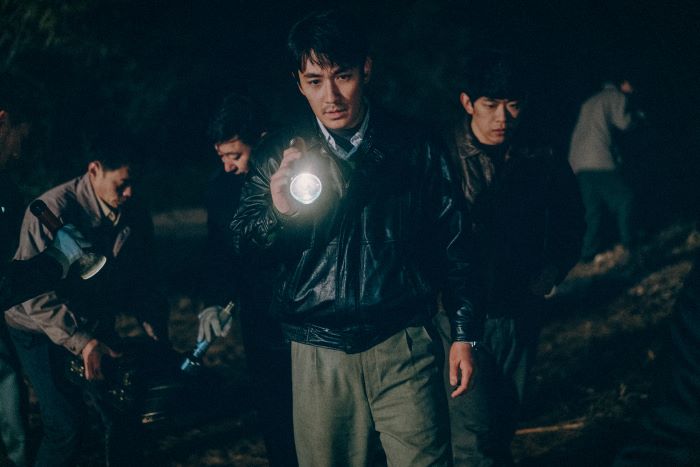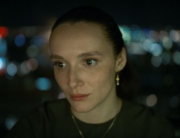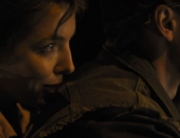The mystery genre has spawned more than one masterpiece in which the detective begins to lose his grip—on reality, on morality, on his personal life, on all of the above. This situation usually arises when the case is especially confounding by conventional standards. Kiyoshi Kurosawa’s Cure features a detective who is up against a mystery that, initially, defies logical explanation. It ends up drawing him much closer to the killer in question (perhaps even wielding his uncanny powers) as his personal life unravels. Park Chan-Wook’s Decision to Leave has a detective who falls in love with a prime murder suspect. Her many secrets and evasions lead him to a place of mounting confusion, which Park brilliantly evokes in the film’s dizzying structure. It should not be too much of a spoiler to say that neither film provides the consolation typical of more routine detective pictures.
Neither does Only the River Flows, a new film that, if it does not join the company of the above two, is still notable and intriguing. The time is 1995, the place is the rural town of Banpo during the onset of the country’s economic boom—those better schooled in Chinese history will be more prepared to dissect the era. (The 1990s was the beginning of China’s one-child policy, and parenthood plays a role here.) Detective Ma Zhe (Zhu Yilong) is in charge of investigating an apparently motiveless crime in a small town outside the city. An old woman, known as Granny Four, is brutally murdered as she is tending geese by a river. She also took care of someone known only as “the madman” (Kang Chunlei). He may be a suspect, and yet he refuses to speak. More people end up becoming involved in the case, yet their presence complicates the case in an especially unique way: They neither illuminate anything about the central crime nor are they easily extricable from it.
Much of the press around this film has described it as both a throwback and homage. I’ll confess that I find that designation confusing, for it is filmed and conceived in a distinctive way that both sets it apart from and deconstructs conventional attempts at the genre. Shots are frequently composed with the principal figures at unlikely places, dwarfed by their surroundings. The film moves at a stately, rather than breakneck, pace, and uncanny details are masterfully buried within a matter-of-fact atmosphere. While choices like naming a character Granny Four might seem more like winks than anything else at first, they really do serve a purpose: illustrating the difficulty of connecting people in a world so vast. Always in this film, there is the sense that people are as likely to completely disappear as to emerge from the dark, and that the world is too vast to make sense of the way detectives want to. This may be true, yet the violence and torment underlying society will not go away, or stop disturbing at the detective in question.
Captain Ma ends up both better and worse than the detectives in Cure and Decision to Leave, for his case is even more discouraging than theirs, and yet, without spoiling much, he at least finds an illusion of peace. One could argue that there are a few too many unanswered questions toward the end, including an especially murky period in which Ma loses control of himself and then abruptly turns away from the case. Still, this film is always a few steps ahead of the viewer. By the end, Only the River Flows has become a fine illustration of the hopelessness of making sense of the world.







Leave A Comment